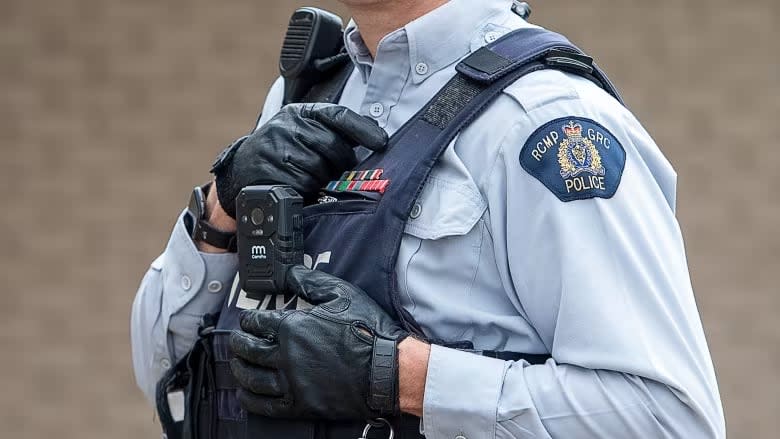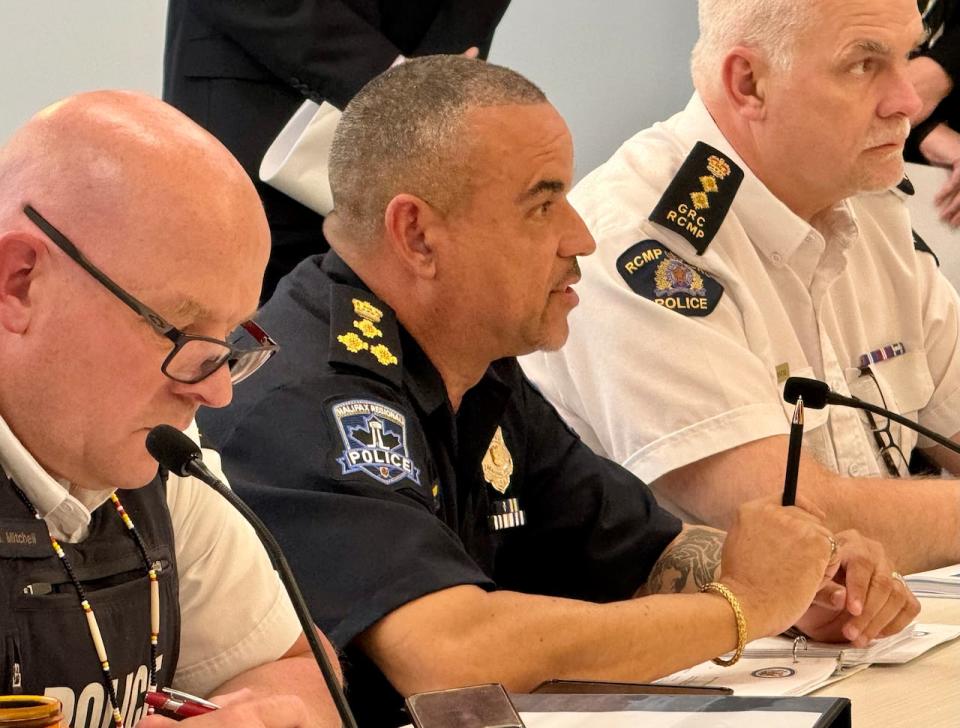RCMP to officially roll out body cameras at some N.S. detachments this fall
A pilot program that saw RCMP officers at some Nova Scotia detachments wearing body cameras is now becoming reality with plans to outfit Mounties in some communities starting in the fall.
Jeff Christie, chief superintendent of the Halifax District RCMP, said cameras will be rolled out slowly between October and March, beginning with detachments in Sheet Harbour, Musquodoboit Harbour and North Preston.
"Body-worn cameras hold the promise of greater transparency, not only for the public but for police officers as well, who are responding to calls," said Christie, who spoke Monday at a Board of Police Commissioners meeting in Dartmouth, N.S. "We see it as a very positive innovation."
As part of a national field test, about 60 officers from seven detachments across Nova Scotia tried out the technology.
The RCMP had planned to outfit between 10,000 and 15,000 front-line officers across Canada in stages, starting in 2023 and running into 2024.
Early tests on the cameras showed there were some issues that had to be worked out, which resulted in some delays. Now the Treasury Board has approved expanding the program.

Body-worn cameras are slowly being adopted by police agencies in Nova Scotia. Kentville was the first police service in the province to equip all of its officers with body cameras in 2018. The town of Truro followed suit in 2021 after a pilot program of its own.
But it hasn't always been a smooth transition. Early versions showed the technology had limitations and storage space is one of the issues forces have been dealing with.
Halifax Regional Police acting Chief Don MacLean, along with other members of his police force, spoke about the importance of getting budget approval for cameras at Monday's meeting.
The cameras, along with the hardware and storage required to operate the system, aren't cheap. The estimated cost to purchase and maintain 400 body-worn cameras for HRP would be $2.4 million per year, including taxes, over the first five years.
MacLead said he and his force's officers believe there is value in capturing exchanges between police and community members.

"With the evolution of the technology that we are now seeing in place in other areas across the country, it shows the ability to have a camera system that is the most unbiased account of certain interactions," said MacLean.
"Having that ability to provide the most fulsome and honest account, in terms of taking the human element out of it to a certain degree in terms of interpretation and perspective, would be beneficial."
Collaboration could help transition
Halifax Regional Police and RCMP have many integrated departments, which Board of Police Commission chair Becky Kent said could make the transition easier if and when HRP begins to implement body-worn cameras.
"The collaboration between HRP and RCMP will allow them to take from each other's experiences, including databases and the protection of that data," she said.
The next step for police in Halifax is to formally ask for the funding in the next municipal budget. In all likelihood, if the entire funding is formally approved, officers still won't be wearing cameras until sometime in 2026 at the earliest.
MORE TOP STORIES

 Yahoo News
Yahoo News 
